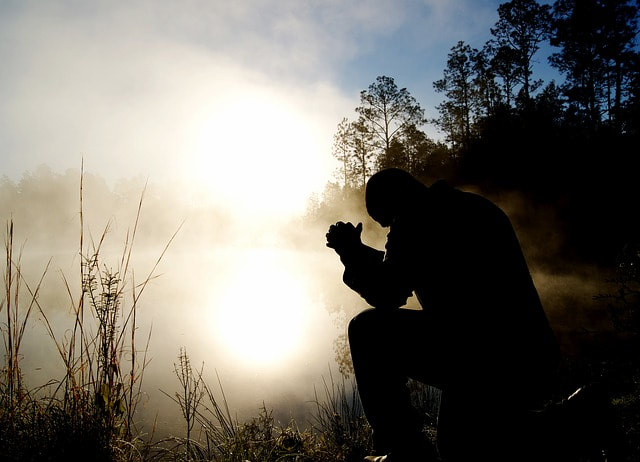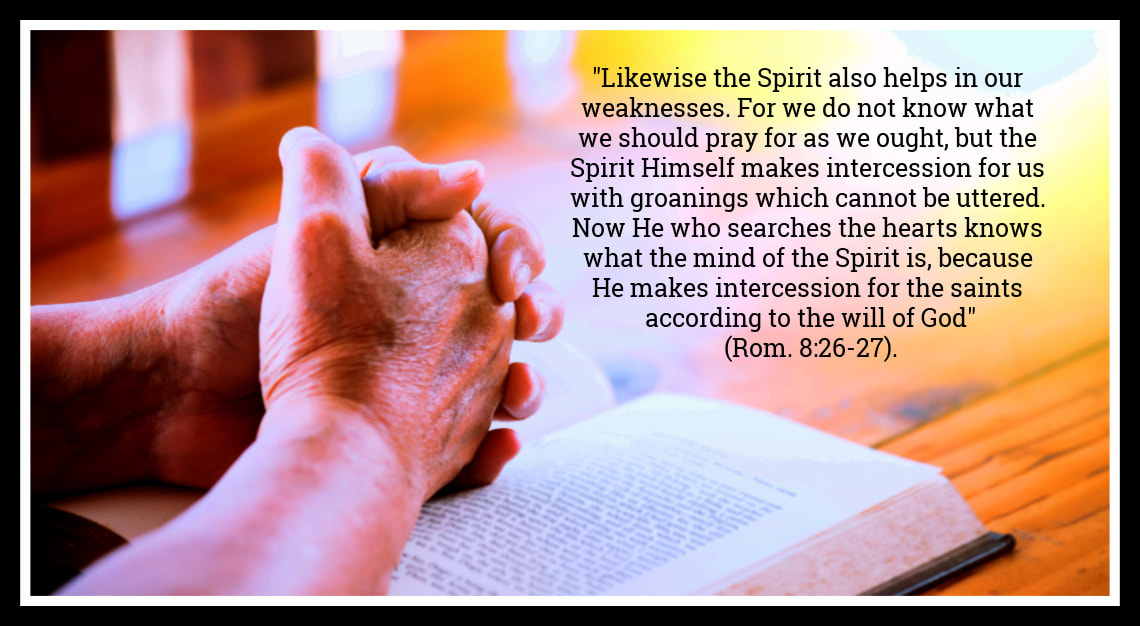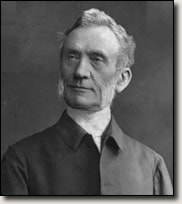|
"If a church is to be what it ought to be for the purposes of God, we must train it in the holy art of prayer. Churches without prayer-meetings are grievously common. Even if there were only one such, it would be one to weep over. In many churches the prayer-meeting is only the skeleton of a gathering: the form is kept up, but the people do not come. There is no interest, no power, in connection with the meeting. Oh, my brothers, let it not be so with you! Do train the people to continually meet together for prayer. Rouse them to incessant supplication. There is a holy art in it. Study to show yourselves approved by the prayerfulness of your people. If you pray yourself, you will want them to pray with you; and when they begin to pray with you, and for you, and for the work of the Lord, they will want more prayer themselves, and the appetite will grow. Believe me, if a church does not pray, it is dead. Instead of putting united prayer last, put it first. Everything will hinge upon the power of prayer in the church." ~ C.H. Spurgeon
0 Comments
Ps 119:32: “I will run the course of Your commandments, for You shall enlarge my heart.” 2 Cor 3:17: “Now the Lord is the Spirit; and where the Spirit of the Lord is, there is liberty.” Ps 55:22: “Cast your burden on the Lord, and He shall sustain you.” It is very difficult to pray. The apostles knew this and asked Jesus, “Lord, teach us to pray” (Luke 11:1). The Lord rebuked them when they failed to persevere in prayer, "Simon, are you sleeping? Could you not watch one hour? (Mark14:37). There is a frustrating mystery of prayer. It is to know exactly what to pray for. There is a natural lack of intuition, direction, and conviction in prayer which the Holy Spirit promises to provide, “The Spirit also helps in our weaknesses. For we do not know what we should pray for as we ought, but the Spirit Himself makes intercession for us with groanings which cannot be uttered” (Rom. 8:26-27). When we have trouble knowing what to pray for, the Spirit of God gives the thoughts, burdens, and petitions we need to bring to God. Keep your daily devotions spirit-driven and you will find a thousand petitions flowing from your heart with ease and joy. Prayers that begin with faith in Christ usually end with the confidence of being heard and the grace to wait for the answer. -Joseph M. Jacowitz (www.christbiblechurch.org) The Christian and the Covid-19 PandemicBy Robert Jones
The generation now living in the United States and in many other nations upon earth will agree to a man that never have they seen a calamity like that which they are passing through resulting from the Coronavirus Pandemic. This pestilence, for which there has been no antidote discovered, is leaving whole societies crippled in its wake as death tolls mount, and economies stagger under the weight of the preventive measures being taken to stop its further spread. As in every public crisis, men’s opinions range from one extreme to another regarding the virus. The most robust and hearty may think it little more than another form of influenza, and not deserving of the restrictive measures imposed upon the country by national, state, and local authorities requiring the closing of schools, businesses, and many other institutions, and the isolating of the population in their own homes. At the opposite extreme are those who are paralyzed with fear of contracting the unknown illness, being suspicious of every cough, sneeze, and running nose they may experience. The true Christian, however, is called to glorify God in his body and in his spirit, which are God’s (I Cor. 6:20). A new trial of his faith in the world does not change the old gospel. The same Christ, “Who was delivered for our offences, and was raised again for our justification” (Rom. 4:25), enables him to continue to say with the Apostle Paul, “According to my earnest expectation and my hope, that in nothing I shall be ashamed, but that with all boldness, as always, so now also Christ shall be magnified in my body, whether it be by life, or by death. For to me to live is Christ, and to die is gain.” (Phil. 1:20,21). With therefore this Rock, the Lord Jesus Christ, to stand upon at all times, what is the Christian to think, say, and do in the bewildering circumstance he is now cast into together with his fellowmen? First, panic occasioned by the fear of dying should certainly not characterize Christ’s followers. Nothing can be clearer in the Word of God than that the believer’s Lord has delivered him from this temptation: “Forasmuch then as the children are partakers of flesh and blood, he also himself likewise took part of the same; that through death he might destroy him that had the power of death, that is, the devil; And deliver them who through the fear of death were all their lifetime subject to bondage.” (Heb. 2:14,15). Neither do they need to be ashamed to declare to others the words of the psalmist: “God is our refuge and strength, a very present help in trouble. Therefore will not we fear, though the earth be removed, and though the mountains be carried into the midst of the sea; Though the waters thereof roar and be troubled, though the mountains shake with the swelling thereof. Selah.” (Psa. 46:1-3). The troubles of the coronavirus have not yet moved the mountains into the sea; therefore, “Trust in him at all times; ye people, pour out your heart before him: God is a refuge for us. Selah.” (Psa. 62:8). Second, let the believer in Christ make the existing crisis a time of self-examination. Such self-examination is in order for the child of God in all seasons: “Examine yourselves, whether ye be in the faith; prove your own selves. Know ye not your own selves, how that Jesus Christ is in you, except ye be reprobates?” (II Cor. 13:5). This examination must concern both his behavior in the sight of others and the secret thoughts of his own heart. Outwardly he must take heed to obey the command given by Jesus to those who asked Him, “Is is lawful for us to give tribute to Caesar, or no? And he said unto them, Render therefore unto Caesar the things which be Caesar’s, and unto God the things which be God’s.” (Lk. 20:22,25). For conscience sake the Christian needs to comply with the rules and regulations in place for the sake of the public health, whether he fears contracting coronavirus or not. Inwardly he must guard his heart against the temptation to hoard food and other goods which may be in short supply. His speech and conduct should be alike blameless: “Do all things without murmurings and disputings: That ye may be blameless and harmless, the sons of God, without rebuke, in the midst of a crooked and perverse nation, among whom ye shine as lights in the world; Holding forth the word of life” (Phil. 2:14-16). Third, let him not be idle in advancing the cause of God and truth. The attributes of God have not changed. The eternal God says to all who are His: “For I am the LORD, I change not; therefore ye sons of Jacob are not consumed.” (Mal. 3:6). Though the coronavirus be a judgment against sinners and their sins which abound as never before, “This is a faithful saying, and worthy of all acceptation, that Christ Jesus came into the world to save sinners” (I Tim. 1:15). The coming of Jesus into the world is the proof of God’s good will toward mankind, as the angels declared to the shepherds on the night of Jesus’ birth, “Glory to God in the highest, and on earth peace, good will toward men.” (Lk. 2:14). The confusion and the sorrow now being caused by the coronavirus do not change the purpose that God now has, nor the promise of Christ for this present hour: “behold, now is the accepted time; behold, now is the day of salvation; and him that cometh to me I will in no wise cast out” (II Cor. 6:2; Jn. 6:37). Let Christ’s witness then seize every opportunity to make these glad tidings known to his troubled friends, neighbors, and acquaintances. In doing so some, even many may hear and believe heaven’s message, “That if thou shalt confess with thy mouth the Lord Jesus, and shalt believe in thine heart that God hath raised him from the dead, thou shalt be saved. For with the heart man believeth unto righteousness; and with the mouth confession is made unto salvation. But as many as received him, to them gave he power to become the sons of God, even to them that believe on his name” (Rom. 10:9,10; Jn. 1:12). Matt 18:19-20: “Again I say to you that if two of you agree on earth concerning anything that they ask, it will be done for them by My Father in heaven. 20 For where two or three are gathered together in My name, I am there in the midst of them." Jesus manifests His presence in a special way when two or more of His disciples meet to pray. Here are a few thoughts about the application of this text: (1) There must be agreement between the praying partners, (2) We must pray together in the Name of Christ. What Jesus affirms here is repeated many times in His teachings: John 14:13-14; 15:16; 16:24, (3) That for which we ask must be believed. Here is real faith, the confidence that prayer will be answered. The promise is that if we ask in agreement with the will of God, we know that the request is granted (1 John 5:14-15). What unspeakable joy! A confidence multiplied as believers’ prayer and believe together. ~ Pastor Joe Jacowitz Isaiah 56:7: “Even them I will bring to My holy mountain, and make them joyful in My house of prayer. Their burnt offerings and their sacrifices will be accepted on My altar; for My house shall be called a house of prayer for all nations”. Prayer is everything to God. It is a barometer of a believer’s spiritual life, and a test of a church’s love. Most churches that begin well in prayer find it enormously difficult to maintain consistency and zeal in prayer for the long term. How can we overcome the snares that hinder prayer? Is private and corporate prayer on your priority list? In the above text, insight is provided into God’s burden for a praying people: 1) Because God is always drawing us to prayer, and back to prayer when we wander, “I will bring”, (2) the best preparation for prayer is walking in holiness “to My holy mountain”, (3) the personal effect of prayer, “make them joyful”, (4) the results of Spirit assisted and Christ mediated prayer are the acceptance of our worship and fruitfulness in our service, “their burnt offerings and their sacrifices will be accepted on My alter”, and (5) prayer points to God’s main interest in organic fellowship and inner communion with Him rather than external rituals, “for My house shall be called a house of prayer”. Prayer is the means for Christians and churches to obey our high callings of: worship, intercession, and holiness, “…you also, as living stones, are being built up a spiritual house, a holy priesthood, to offer up spiritual sacrifices acceptable to God through Jesus Christ” (1 Pet. 2:5). “Prayer does not fit us for the greater work, prayer is the greater work.” (Oswald Chambers). Does your church have a prayer meeting? Will you ask God to strengthen your prayer life? Therefore, press on because there is hope: Jesus “always lives to make intercession for us” (Heb. 7:25). - Pastor Joe Jacowitz “I had a secret satisfaction in the greatness of the difficulties which were in the way. So far from being cast down on account of them, they delighted my soul." ~ George Muller "It is not enough for the believer to begin to pray, nor to pray correctly; nor is it enough to continue for a time to pray. We must patiently, believingly continue in prayer until we obtain an answer. Further, we have not only to continue in prayer until the end, but we have also to believe that God does hear us and will answer our prayers. Most frequently we fail in not continuing in prayer until the blessing is obtained, and in not expecting the blessing. Those who are disciples of the Lord Jesus should labor with all their might in the work of God as if everything depended upon their own endeavors. Yet, having done so, they should not in the least trust in their labor and efforts, nor in the means that they use for the spread of the truth, but in God alone; and they should with all earnestness seek the blessing of God in persevering, patient, and believing prayer. Here is the great secret of success, my Christian reader. Work with all your might, but never trust in your work. Pray with all your might for the blessing in God, but work at the same time with all diligence, with all patience, with all perseverance. Pray, then, and work. Work and pray. And still again pray, and then work. And so on, all the days of your life. The result will surely be abundant blessing. Whether you see much fruit or little fruit, such kind of service will be blessed." - George Muller For more quotes go to: www.georgemuller.org Psalm 103:1-5 - Five Reasons to be ThankfulBless the Lord, O my soul;
And all that is within me, bless His holy name! Bless the Lord, O my soul, And forget not all His benefits: Who forgives all your iniquities, Who heals all your diseases, Who redeems your life from destruction, Who crowns you with lovingkindness and tender mercies, Who satisfies your mouth with good things, So that your youth is renewed like the eagle’s. (Psalm 103:1-5). The first thing we are exhorted in this Psalm is to praise the Lord. Our hearts should always abound with thanksgiving and praises to the Lord. The Bible says: "Therefore by Him let us continually offer the sacrifice of praise to God, that is, the fruit of our lips, giving thanks to His name" (Heb. 13:15). The second exhortation is that we should not forget all His benefits toward us. By nature, we are a forgetful people. But that ought not to be so. The Bible says: "Enter into His gates with thanksgiving, and into His courts with praise. Be thankful to Him, and bless His name" (Psalm 100:4). Psalm 103:1-5 gives us five reasons to be thankful and it is an excellent reminder as we approach Thanksgiving. Here they are: 1. We are to be thankful for the forgiveness we have in Christ. The greatest blessing is the forgiveness we have in Christ: "In Him we have redemption through His blood, the forgiveness of sins, according to the riches of His grace" (Eph. 1:7). "Blessed is he whose transgression is forgiven, whose sin is covered. Blessed is the man to whom the Lord does not impute iniquity, and in whose spirit there is no deceit" (Psalm 32:1-2). 2. We are to be thankful for good health. Good health is a blessing for God and we should never take our health for granted. God does not guarantee healing every time we get sick; but when we do get sick and recover, it is because God has healed us. Sometimes God lets us get sick for God can even use sickness for our good and for our sanctification. God works through medicine and doctors to heal us. "O Lord my God, I cried out to You, and You healed me" (Psalm 30:2). 3. We are to be thankful for God redeeming our life from destruction. Many times we wander astray like lost sheep and like the prodigal son. But Christ is the Good Shepherd of the sheep (John 10:11) and He cares for each of His sheep and will seek out His sheep till He finds it. Christ cares for each of His sheep not only as a group but also individually. Each of Christ's sheep is very precious in His sight. "Then they cried out to the LORD in their trouble, and He saved them out of their distresses" (Psalm 107:13). 4. We are to be thankful for God's lovingkindess and tender mercies. God's mercies are great. God does not give us what we deserve. His grace is unmerited and undeserved. The Bible says: "The LORD is merciful and gracious, slow to anger, and abounding in mercy. He will not always strive with us, nor will He keep His anger forever. He has not dealt with us according to our sins, nor punished us according to our iniquities. For as the heavens are high above the earth, so great is His mercy toward those who fear Him; as far as the east is from the west, so far has He removed our transgressions from us. As a father pities his children, so the LORD pities those who fear Him. For He knows our frame; He remembers that we are dust" (Psalm 103:8-14). 5. We are to be thankful for God's provision. We need to be thankful for God's providing for us all that we need such as food, clothing, and housing. "The LORD is my shepherd; I shall not want" (Psalm 23:1). Indeed God is very faithful and that is a cause for thanksgiving. Even "If we are faithless, He remains faithful; He cannot deny Himself" (2 Tim. 2:13). His mercies are new every morning and great is His Faithfulness. "Through the Lord’s mercies we are not consumed, because His compassions fail not. They are new every morning; great is Your faithfulness" (Lam. 3:22-23). |
Archives
June 2022
Categories
All
|










 RSS Feed
RSS Feed